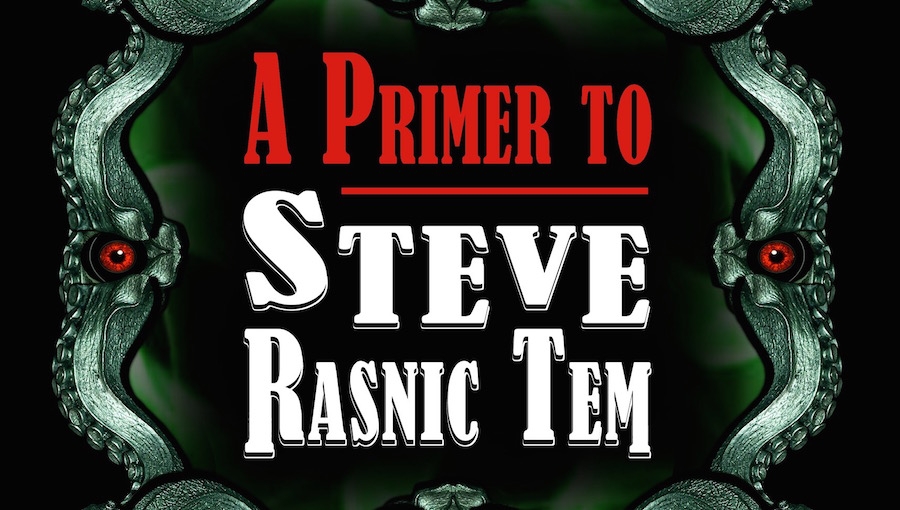“But when this darkness is faced, even metaphorically, I believe that a certain sense of liberation occurs which is healthy for people—it is the liberation of integration, the relief that comes when we realize that no more dirty, closeted secrets remain.” -Steve Rasnic Tem, “The Subject Matter of Horror,” Exploring Short Dark Fiction #1: A Primer to Steve Rasnic Tem
I hesitate to give any one person credit for Exploring Short Dark Fiction #1: A Primer to Steve Rasnic Tem; the text, which is edited by Eric J. Guignard, is a curated assemblage of Steve Rasnic Tem’s short horror fiction, Michael Arnzen’s brief commentary, and Michelle Prebich’s illustrations. The effect is glorious. Prebich’s illustrations have a wood-block print quality that gives them a folk art feel. As perfect representations of Tem’s stories, the illustrations really compound the haunting aura of Tem’s stories, and often work to highlight the human core of each story. Arnzen’s commentary is well balanced; he brings a rigorous framework of Marxist, Freudian, and feminist analysis to bear on Tem’s fiction, but in a light (impressively so!) fashion. Readers don’t need a Bachelor’s degree in critical theory or literature to understand Arnzen’s commentary, and the effect is that even lay-readers can deepen their appreciation of the pointed critiques that Tem makes through his work. Tem’s fiction is, rightly so, the element of the collection that shines brightest. Tem’s stories are haunting and deeply interested in humanity’s strangest, darkest desires.
Steve Rasnic Tem’s horror is meticulous. Every detail is ripe with symbolic meaning, and his characters, whose experience of horror often parallels the reader’s, feel intensely real. Tem’s monsters are sometimes real and sometimes existential, but always complex. For example, in “Hungry,” a man with an unappeasable hunger is both an unsettling character and one who is very loved by his mother. While Arnzen’s commentary left me thinking about the structure and purpose of story, Tem’s fiction has left me thinking about the human condition, about monsters who are also people, and about existential dread.

